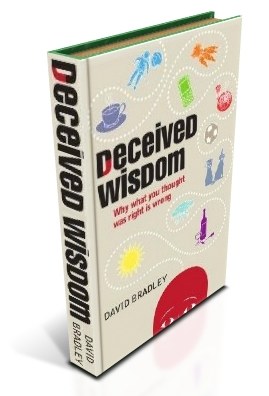 There is cynical marketing and then there is exploitation. But, some companies are now musing on the idea of heavenly pop-up ads, interstitial banners for the afterlife and infographics to accompany the song sheets for the choir invisible. Of course, you cannot take it with you, but if they can sell it to you before you go then the shareholders are happy either way.
There is cynical marketing and then there is exploitation. But, some companies are now musing on the idea of heavenly pop-up ads, interstitial banners for the afterlife and infographics to accompany the song sheets for the choir invisible. Of course, you cannot take it with you, but if they can sell it to you before you go then the shareholders are happy either way.
Writing in a forthcoming issue of the economics research publication the International Journal of Business Performance Management, European marketing experts explain how fundamental religious experience can offer a novel perspective in commerce. Of course, of the centuries, there have always been individuals and institutions who would exploit faith to extract as much value from the flock, as it were. Whether that is taking a practitioner’s possessions in the name of the faith’s non-material ethos, simply taxing worshippers to pay for churches, temples and priestly accoutrements or selling candles, charms and other trinkets in the café-shop as you leave the building.
Jonathan Wilson of the University of Greenwich, UK and Svend Hollensen of the University of Southern Denmark suggest that companies might now be taking this idea to a new, higher level. “Customer lifetime value (CLV) is an established relationship marketing-centric approach to evaluating performance: based upon the significance of a customer, and what resources should be allocated towards maintaining relations — beyond short-term transactional views,” they explain. They now point out that given the billions of people who also believe in the possibility of life beyond death, there is a pressing need for business to also consider Customer afterlifetime value.
The researchers hint that the philosophical, scientific and metaphysical debates are quite irrelevant to many people. Those people simply believe in their god or gods and the fact of their continued existence in some form or another after they die. The team has considered the perspective of the various world religions and provides the fundations for understanding how different belief systems feed the followers’ attitude to commerce. Crucial to an improved understanding of selling to the faithful is perhaps to take the longer view, a lifetime and an after-lifetime view.
“Polemically it is argued that the fact that enough individuals live believing that an afterlife is present, means that from a business and economics perspective of supply and demand, these concepts should be viewed as rather than needing answered, instead should be served and evaluated,” the team states. In other words, if you want to improve those elusive factors such as brand identity and loyalty, it might be worth the commercial world adopting the perspective that those taxing priests had in days of yore. After all, if you cannot take it with you later, that doesn’t mean that they cannot take it off you now.
![]() Wilson, J.A. (2013). Assessing the implications on performance when aligning customer lifetime value calculations with religious faith groups and afterlifetime values — a Socratic elenchus approach, Int. J. Business Performance Management, 14 (1) 94. DOI:
Wilson, J.A. (2013). Assessing the implications on performance when aligning customer lifetime value calculations with religious faith groups and afterlifetime values — a Socratic elenchus approach, Int. J. Business Performance Management, 14 (1) 94. DOI:
 It’s nice to be in such esteemed company. Apparently, customers who downloaded the free pre-launch electronic sampler of my book
It’s nice to be in such esteemed company. Apparently, customers who downloaded the free pre-launch electronic sampler of my book  Atlas by Collins (launched today) pitches itself as the greatest app on Earth (geddit?). It’s a constantly evolving data visualisation tool for representing worldwide information on a selection of themed globes with over 200,000 places to explore.
Atlas by Collins (launched today) pitches itself as the greatest app on Earth (geddit?). It’s a constantly evolving data visualisation tool for representing worldwide information on a selection of themed globes with over 200,000 places to explore.